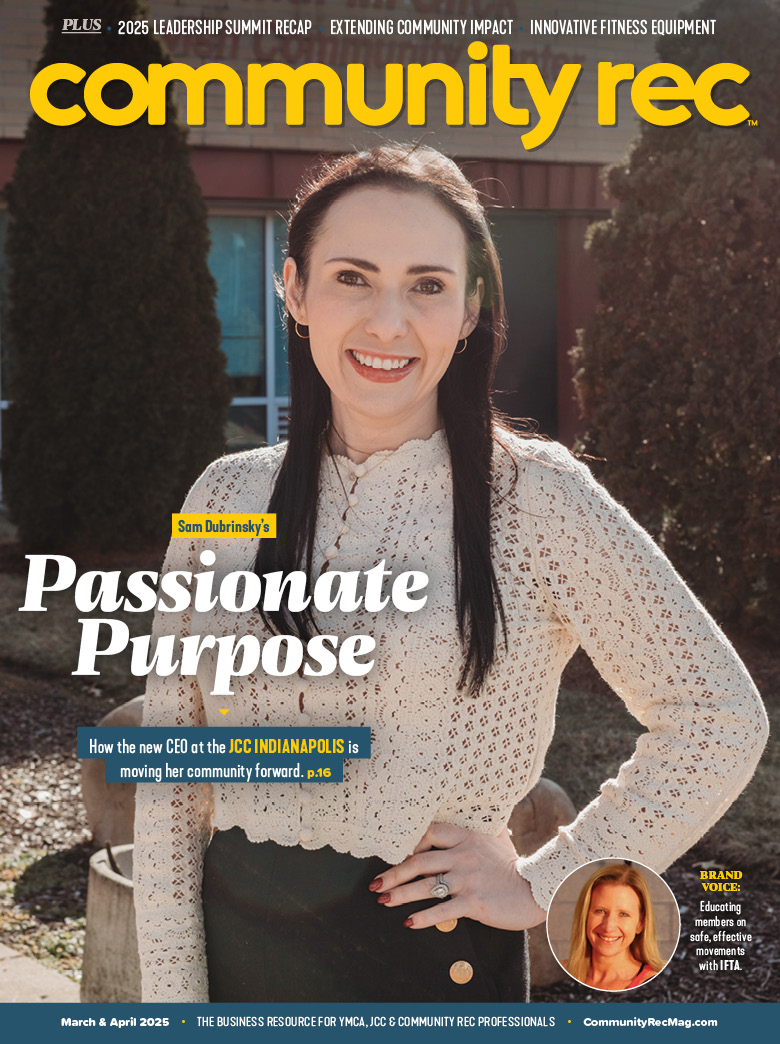Learn how Camp Yachad at the JCC of Central New Jersey makes inclusion an agency-wide priority.
For over 20 years, Camp Yachad at the JCC of Central New Jersey has offered support and accommodations to campers with disabilities. One of the many programs offered is the Shadow Program.
“Our Shadow Program allows campers with special needs to be fully integrated in an immersive camp experience right alongside their same age, neurotypical peers through a one-on-one support aide, or a ‘shadow,’” said Beth Mitchell, the director of inclusion and diversity at the JCC. “While the concept of a Shadow counselor may not be unique in the recreational camp setting, the trajectory of our campers’ journey is one of a kind.”
Mitchell explained campers eventually age out of the camper model. Some apply to work in the Leaders in Training program or apply to become counselors in later years. To honor this rite of passage and make it accessible to all, the JCC also created the Skills Training Program.
“This distinctive program provides paid supported vocational training to campers with disabilities who are aging out so they can hone the skills needed for gainful employment in our camp in the future,” said Mitchell.
The Skills Training Program started roughly seven years ago when a staff recruitment email was sent out in the fall to former teen campers, inviting them to work at Camp Yachad for a great summer job. Mallory Zipkin, the camp director at the JCC, shared a long-time camp parent responded by asking if her son could actually work at the camp. “This is a child who grew up in our Shadow Program, and a child who had autism,” said Zipkin. “They were really successful in our shadow program, but absolutely needed support. At the time, I had a co-director and we looked at each other and said, ‘why not?’”
Zipkin wrote back to the parent inviting them to come in for a meeting to discuss what it would look like for her son to work in camp, be successful and for everyone to feel comfortable. They thought a lot about his specific interests and skills, and knew he loved art, so they decided he should be an assistant in the art program.
“Summer came, he worked and did a fantastic job,” said Zipkin. “The parent came to us at the end of the summer and said it’s not enough to just do this for him; we should be doing this for everybody. She helped us build this program that has now become an inclusive staff program existing for about seven years now.”
The JCC is up to 10 participants per summer, providing the social benefits of being part of a camp and the ability to earn a paycheck. “This is an experience for them to have a summer job like their peers, outdoors, having fun working with kids, making an impact and in a place where, — maybe not all of them but many of them — had their own positive memories of their childhood as campers,” said Zipkin. “They get to give back to the place they had such a wonderful experience in and I think that is the best part for us, too.”
A lot of work goes into being able to offer these programs, such as detailed trainings and a full summer inclusion team with a director of the Shadow and Skills Training programs. For training, during camp Shadow counselors meet weekly — or daily as needed — to review strategies they can use to support campers. Skills Training staff are met with every morning to go over hard and soft vocational skills around socialization and job expectations. They also have weekly feedback meetings from their supervisor.
Additionally, the JCC runs an extensive weekend of staff training yearly, alongside continuing education and working with insurance partner The Redwoods Group for pre-camp online training modules.
Zipkin explained Shadow counselors who work in the one-on-one inclusion program have a dedicated training where they learn strategies and goal setting expectations. This includes reviewing intake work Mitchell does for the children who will be in the Shadow Program, meeting the child’s parents they will be paired with and learning what they’re going to focus on for the child’s success. From there, they set up a play date to meet and then they’re ready for camp.
“I think the tool we could impart onto others would be the really thoughtful intake process,” said Zipkin. “Beth has done a tremendous job in professionalizing that by bringing in new HIPAA-compliant software called SimplePractice we use to store all information. Beth has created an index for each participant — or option of participants — to get a better picture of who they are beyond what their parent thinks of them, including teacher references.”
Running Camp Yachad is not easy but it’s an important program that is near to the JCC’s heart. Mike Goldstein, the executive director, shared the J is very proud of the work they do and have a great reputation in the community as being a place where inclusion is an attitude, not an activity — inclusion is belonging.
“It’s about building relationships and seeing personal, positive developmental growth,” he said. “What keeps me motivated is knowing we are shining a light in in the darkness, making a difference and building a better society.”










